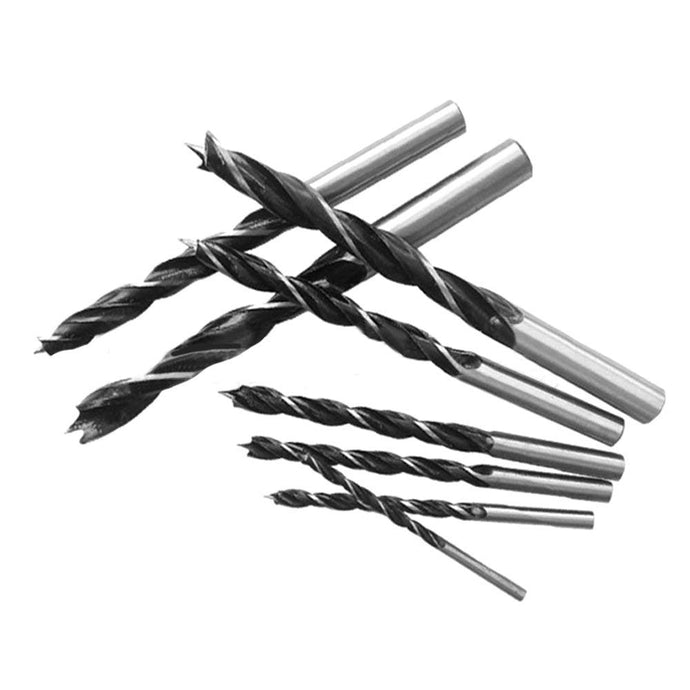Precision and Power: The Role of a Pilot Point Drill Bit in Your Toolbox
Drill bits come in many shapes and sizes, each designed for a specific task or material, but among them, the pilot point drill bit stands out for its exceptional versatility and precision. Whether you're an experienced tradesperson or a DIY enthusiast, understanding the uses and benefits of the pilot point drill bit can significantly improve your drilling experience, ensuring more accurate, efficient, and cleaner results in a variety of materials. This specialized drill bit has a few key features that set it apart from conventional twist drills, making it an essential tool for projects that require precision and neatness.
A pilot point drill bit is essentially a variation of the twist drill bit, but with one crucial difference: it has a small, sharp point at the tip, which serves to help guide the bit as it enters the material. This pilot point acts much like a guide, allowing the bit to start drilling exactly where you intend, without slipping or wandering off course. In contrast to traditional drill bits, which can sometimes skate across the surface of a material, the pilot point ensures that the bit stays centered throughout the drilling process, even on smooth or slippery surfaces. This is especially useful when you're working with materials like wood, plastic, or metal, where precision is key.
One of the primary uses of a pilot point drill bit is for drilling into wood, where its guiding tip prevents the bit from slipping as it enters the surface. When working with softwoods or hardwoods, the pilot point bit allows for cleaner, more accurate holes with minimal risk of the drill bit wandering off course. The sharp tip ensures that the bit starts in the right place, while the spiral design of the bit helps to remove material efficiently as you drill deeper. This reduces the chances of damaging the surrounding wood, ensuring that the final hole is neat and precisely sized.
Another advantage of pilot point drill bits is their ability to create clean, well-defined holes without the rough edges or tear-out that often accompany traditional drill bits. This is particularly important when drilling through the backside of a material, where a clean exit point is just as important as a clean entry point. With a traditional drill bit, you might find that the hole is ragged or splintered on the underside of the material, but the pilot point drill bit minimizes this issue by providing more control and precision, which results in smoother, cleaner holes.
The versatility of the pilot point drill bit extends beyond just wood. It can also be highly effective when working with metal, plastics, and even thin sheets of drywall. For metals and plastics, the pilot point's sharp tip helps reduce the risk of the bit skating across the material, which can be a common issue when drilling into harder or slick surfaces. In addition, the point helps reduce the heat generated during drilling, which is particularly useful when working with heat-sensitive materials. The point also ensures a more consistent hole diameter and depth, reducing the likelihood of drill bit wandering that can sometimes occur when drilling into these harder surfaces.
Pilot point drill bits come in a wide range of sizes, from small bits used for delicate tasks to larger bits designed for heavier-duty applications. They are often available in both sets and individual pieces, which allows you to choose the right size for the job at hand. While they are particularly popular in woodworking, their versatility also makes them suitable for a broad spectrum of applications, including general construction, DIY projects, and even automotive work.
Although the pilot point drill bit excels at creating clean, precise holes, it is worth noting that it may not be the best choice for all types of drilling tasks. For example, when drilling into extremely hard materials like concrete or masonry, a specialized masonry drill bit with a carbide tip is typically a better choice. However, for most general-purpose drilling needs in wood, plastic, and metals, the pilot point drill bit provides an outstanding level of accuracy, speed, and cleanliness.
In addition to their accuracy and versatility, pilot point drill bits are also highly durable. Many are made from high-speed steel (HSS) or cobalt, which ensures they can withstand the demands of frequent use and still maintain their sharpness and effectiveness. As a result, investing in a good set of pilot point drill bits can save you time, effort, and money in the long run, as they tend to last longer than standard drill bits and deliver better results consistently.
In conclusion, a pilot point drill bit is a must-have tool for anyone who values accuracy and clean results in their drilling projects. Whether you are drilling into wood, plastic, or soft metals, the pilot point bit's unique design ensures precise entry, minimal wandering, and smooth, well-defined holes. Its ability to guide the drill bit with accuracy makes it indispensable for professional contractors and DIY enthusiasts alike. If you're looking to improve your drilling efficiency and achieve cleaner, more accurate holes, the pilot point drill bit should be an essential part of your toolkit.








